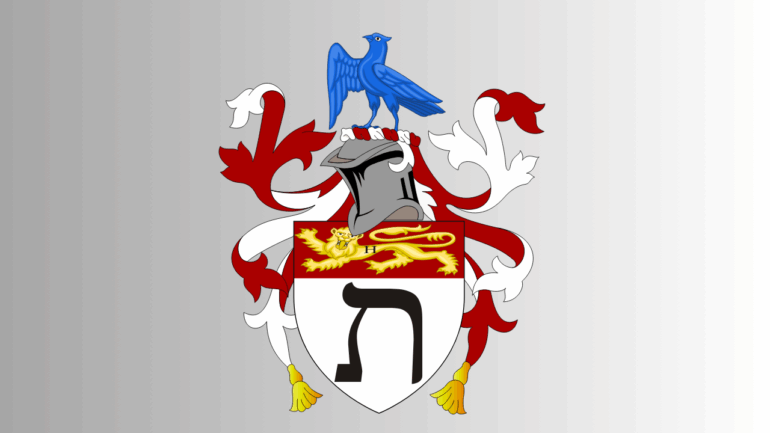In the past month, Professor Aaron Koller made headlines when it was announced that he’d be leaving his post at Yeshiva University to hold the Cambridge University Regius professorship in Hebrew.
This post was established by King Henry VIII of England in 5300 (1540), and Koller’s appointment is historic in that he will be the first Jew to hold this post since its creation, breaking a nearly 500 year chain of Christian scholars, most of them Anglican clergymen.
Cambridge University was founded in 4969 (1209) and officially chartered in 4991 (1231) after breaking away from the older Oxford University, at a time when Jews in England faced severe persecution.
From the blood libel of William of Norwich in 4904 (1144), to the murder of renowned tosafists Rav Yaakov of Orleans and other members of the Jewish community during the coronation of Richard I in 4949 (1189), to the ultimate expulsion of the Jews from England in 5050 (1290), the late-medieval humanist idealism that animated the creation of the modern university in Catholic Europe did little to undercut the strong Christian Jew hatred that was pervasive in these societies.
Just as Martin Luther’s rejection of Catholic theology which sparked the Protestant Reformation in 5277 (1517) found no problem with, and even reinforced, Catholic Jew-hatred, when Henry VIII broke with the Catholic Church and founded the Church of England, Jews remained persona non grata across his domains.
So, while he adopted the Protestant desire to reinterpret the Bible, free of Catholic dogma, a move which led him to establish the professorship in Hebrew at Cambridge, it was abundantly clear that the appointment would go to a member of his newly reformed clergy, and not to one of the despised “Hebrews.”
Though some unofficial Jewish resettlement in England began in the aftermath of the expulsion from Spain in 5252 (1492), it wasn’t until 5315 (1655) that Jews were officially permitted to return.
These restrictions did not hinder the growth of the newly established department at Cambridge.
The second Regius professor of Hebrew studied with German-Jewish grammarian Eliyahu Bahur, who was himself under the patronage of the Cardinal of Viterbo.
The third Regius professor, Immanuel Tremellius, was actually a Jew bred in Italy who had come to adopt the Christian religion. Tremellius, together with fellow teacher Philip Ferdinand – another Jew who left his people and adopted Christianity, were instrumental in educating the next generation of Cambridge Hebraists that would compile the King James Bible’s English translation, published in 5271 (1611).
Through Cambridge’s instruction in Hebrew, and the English Bible that it produced, Anglican clergy and laymen alike joined other Protestants in producing revolutionary new interpretations of Israel’s Torah through the lens of Christian theology and Medieval European culture. While this trend originated as a result of Henry VIII’s marital strife, and his need to religiously justify the annulment of his marriage to Catharine of Aragon on the basis of a selective interpretation of Sefer Vayikra (Leviticus), Anglicanism took hold across England, surviving as the official state religion of Great Britain to this day.
But must Hebrew studies departments remain divorced from the Jewish people – the actual living remnants of Hebrew civilization – in perpetuity?
On its surface, it appears that Professor Koller’s appointment is an attempt by Cambridge to answer this question with a definitive no. Appointing not just a Jew, but a graduate of Yeshiva University, to this post is a clear sign that academia is trying to make a public about-face.
Unfortunately, Koller’s own statements shed doubt on whether he will truly take the department in a new direction.
He has said of his position, “One of the challenges we’ve had, politically and educationally, is that the idea of Hebrew has been tied in with a particular nation state in the past 75 years. While that has some advantages – suddenly you have 10 million native speakers of the language – it also has educational disadvantages because people are thinking Hebrew is quite a political thing… But part of my role is to say: Hebrew has a massively and really fascinatingly long history, and has nothing to do with the nation state that happens to exist today in the 21st Century.”
This stance of actively distancing the study of Hebrew from the Jewish state and its people, in an attempt to make it more palatable to British and international students, is a direct continuation, and not a repudiation, of Cambridge’s age-old policy of teaching “Hebrew without Jews” for Anglican students.
In fact, this approach that divorces Hebrew, and ancient Hebrew texts, from Israel as a living nation in order to universalize them is Christian theology in a nutshell.
Encouraging gentiles to read and interpret the books of Hebrew prophecy on their own terms, with their own biases, even when filtered through the pedagogy of a token Jew, is a Christian rite as old as their dead god and his Jewish followers.
Koller’s previous works, on the binding of Yitzḥak and on the character of Esther, are similarly situated in this tradition, undermining and critiquing traditional Jewish thought in order to present these prophetic narratives as comfortably compatible with the modern sensibilities of the post-Christian Western world.
So, while some may be celebrating Koller’s appointment as a landmark moment in the history of Jewish studies in academia, and a unique opportunity to deepen the dialogue between Jews and Christians, I’m less enthusiastic.
Whether Koller is conscious of the history and ideological paradigm of his field, or so deep within the world of academia that he can’t perceive the worldview through which he passively sees reality, his appointment at Cambridge will only serve to reinforce the veil that distances Jews and gentiles alike from actually coming to terms with the Divine processes playing out in Israel today.
When Koller and his peers advance the cold, dead, academic lens that tries to keep Israel’s redemption on ice, these professors actively hinder the redemption process by cheapening Israel’s unique prophetic identity and our modern return to the stage of history.
By learning the words of our prophets as understood by their students (our sages), and by deepening our own understanding of the redemption process though the study of emuna, we can counter the destructive impact of academia’s infantile interpretation of Hebrew prophecy, and help humanity advance towards the next stage of history.





